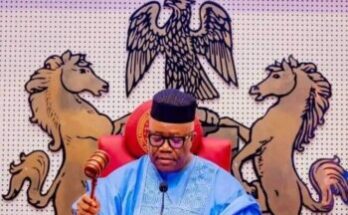To start with, few days to the end of President Olusegun Obasanjo administration in 2007 he privatised 51% stakes of our moribund Kaduna and Port Harcourt refineries to a business consortium led by Alhaji Aliko Dangote with the aim of resuscitating them by the consortium for local refining, but soon after late President Yar’adua took over power he revoked the transaction. Sadly, 16 years after, the refineries have remained moribund. Nigeria’s four refineries have an installed capacity of 445,000 per barrel daily productions.
Decades of diversion of budgetary provisions for Turn Around Maintenance (TAM) led to the collapse of all our refineries. The collapse of our refineries brought about the importation of refined products. The continuous government’s regulation of the sector brings about the infamous subsidy payments. Subsidy payments steadily rose from N351bn in 2005 to N4.39trn in 2022, while N3.6trn was earmarked to fund fuel subsidy for the first six months in 2023.
Many players in the industry believe that government’s regulation of the sector is largely responsible for lack of siting of private refineries in the country despite issuance of many licences to private refinery operators. Government owned refineries remain shut yet government continues to pay “trillions” of naira as subsidy amidst perennial fuel scarcity. Industry players resolved that the regulation of the sector and local refining are the only permanent solution to fuel scarcity in Nigeria.
Dangote who is very determined to venture into the energy sector built his own refinery from the scratch. It is a 650,000 barrel per day capacity refinery which is more than the combined 445,000 per barrel capacity of our moribund refineries. It is Africa’s biggest oil refinery and the world’s biggest single-train facility. The 650,000 refinery will be equal to about 120,000 litres per day more than our daily 60,000 litres domestic demand.
Interestingly, the Nigerian government which revoked the sale of its 51% stake to Dangote Group under Yar’adua has now under President Muhammadu Buhari bought 20% stakes in Dangote’s owned refinery which he built from the scratch at $18.5bn. I salute Dangote’s determination and doggedness. It is finally a win-win situation as Dangote may not have achieved this feat without government’s cooperation. I salute the Buhari government for giving all the necessary support required. I also salute the Lagos state government for their support. Public Private Partnership is very important especially in modern economy.
We need many Dangotes for socio-economic development. The refinery will definitely have a positive impact on the value of Naira against the Dollars because it will reduce the demand for foreign exchange on refined products. It will make more foreign exchange available. Dangote Group will in the future increase foreign exchange supply to Nigeria through the export of his refined products which is more than our daily requirements. From the federal, state and local governments we need to attract both local and foreign investors with favourable policies in order invest and create jobs to our people.
Many International organisations, economists and experts in oil and gas industry state the refinery will lead to the following:
(1) Help Nigeria’s economic recovery drive; (2) Help the country improve its current account balance; (3) Supply over 12 per cent of Africa’s products demand and would bring about a 36 per cent reduction in the importation of petroleum products into the continent; (4) Reverse the huge sum the country spends on foreign exchange (about $57 billion import); (5) Save Nigeria about $9bn yearly from importing petroleum products.
(6) Stimulate economic growth by impacting the country’s balance of payments; (7) Further growth and development across its value chain, including cosmetics, plastics, textiles etc.; (8) Revolutionise the oil and gas industry in Nigeria; (9) Nigeria could save up to $10 billion in foreign exchange and generate another $10 billion in exports; (10) Create direct and indirect jobs, etc.
Key facts about Dangote Refinery:
The Dangote Refinery is expected to produce 650,000 barrels per day (Bpd) integrated refinery project, reputed as Africa’s biggest oil refinery and the world’s biggest single-train facility. A single-train refinery uses an integrated distillation unit or one crude distillation unit to refine crude oil into various petroleum products, as against the use of multiple distillation units by most big refineries. The refinery covers a land area of approximately 2,635 hectares, which is about six times the size of Victoria Island, Lagos. The pipeline infrastructure is the largest in the world, with 1,100 kilometers to handle 3 billion standard cubic ft of gas per day. The refinery has a 435MW power plant that is able to meet the total power requirement of Ibadan DisCo, covering five states, including Oyo, Ogun, Osun, Kwara and Ekiti.
The refinery will meet 100 per cent of the Nigerian requirement of all refined products and also have a surplus of each of these products for export. It is designed to process Nigerian crude with the ability to also process other crudes. Diesel and gasoline products from the refinery will conform to Euro V specifications. The refinery design complies with World Bank, US EPA, European emission norms and the Department of Petroleum Resources (DPR) emission/effluent norms. At full production, the complex will have an annual refining capacity of 10.4 million tonnes of gasoline, in addition to 4.6MT of diesel and 4MT of jet fuel. It will also produce 0.69Mt of polypropylene, 0.24MT of propane, 32,000T of sulphur and 0.5MT of carbon black feed.
The refinery also includes a 440-million-litre water treatment tank farm and a housing estate built for 50,000 staff and their families on site. The refinery would create a market for $1billion per annum of Nigerian crude and foreign exchange savings/earnings of $9.9bn. The complex also includes a fertiliser plant, which uses by-products from the refinery as raw materials. The project is expected to generate 4,000 direct and 145,000 indirect jobs. The refinery is being funded with $3bn equity and $6bn loan capital. A consortium of local and international banks led by the Standard Chartered Bank provided a $3.3bn loan facility. The African Finance Corporation (AFC), the African Development Bank, (AfDB), the African Export-Import Bank (Afreximbank), among others, also provided financial support.
The United States Trade and Development Agency offered a N251.3bn ($0.997m) training grant to develop human resources for operating the refinery. It trained 900 young engineers in refinery operations outside the country, six mechanical engineers at GE University in Italy. Fifty process engineers were also trained by Honeywell/UOP for six months, as well as 50 management trainees for succession. The cost of completion is pegged at $19bn.
Kudos to Dangote Group!
Congratulations to all Nigerians!
God bless Nigeria!
Dauda writes from Kaduna, Kaduna state via [email protected]




